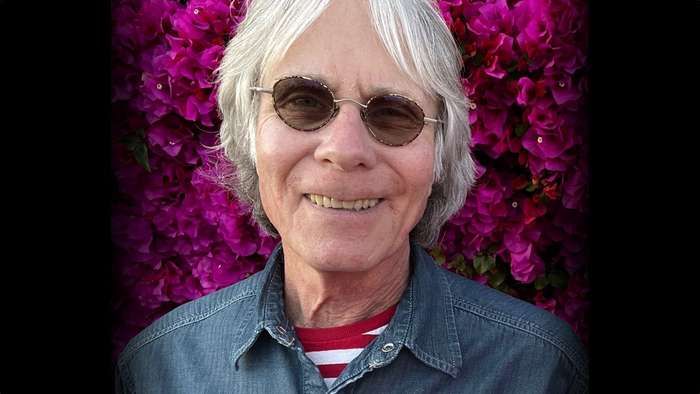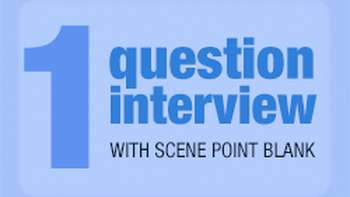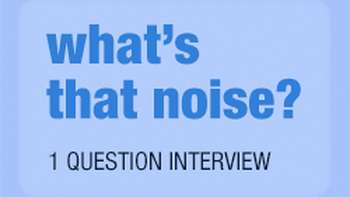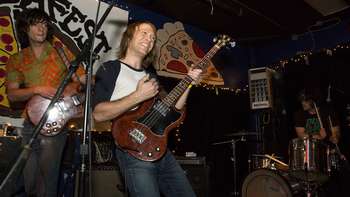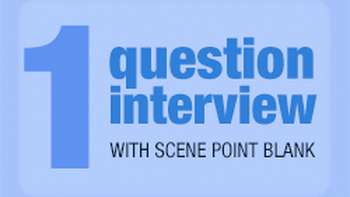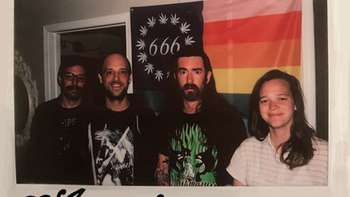Scene Point Blank: It's funny you mentioned The Bear because when I was talking to Greg Norton I drew a parallel between the music business and him being a chef and he told me that a lot of his friends who are in the restaurant business had PTSD from watching The Bear because it's highly accurate.
One LP that you mention in your book that I didn't know or had never explored was Paul McCartney's brother’s LP: Mike McGears – McGear.
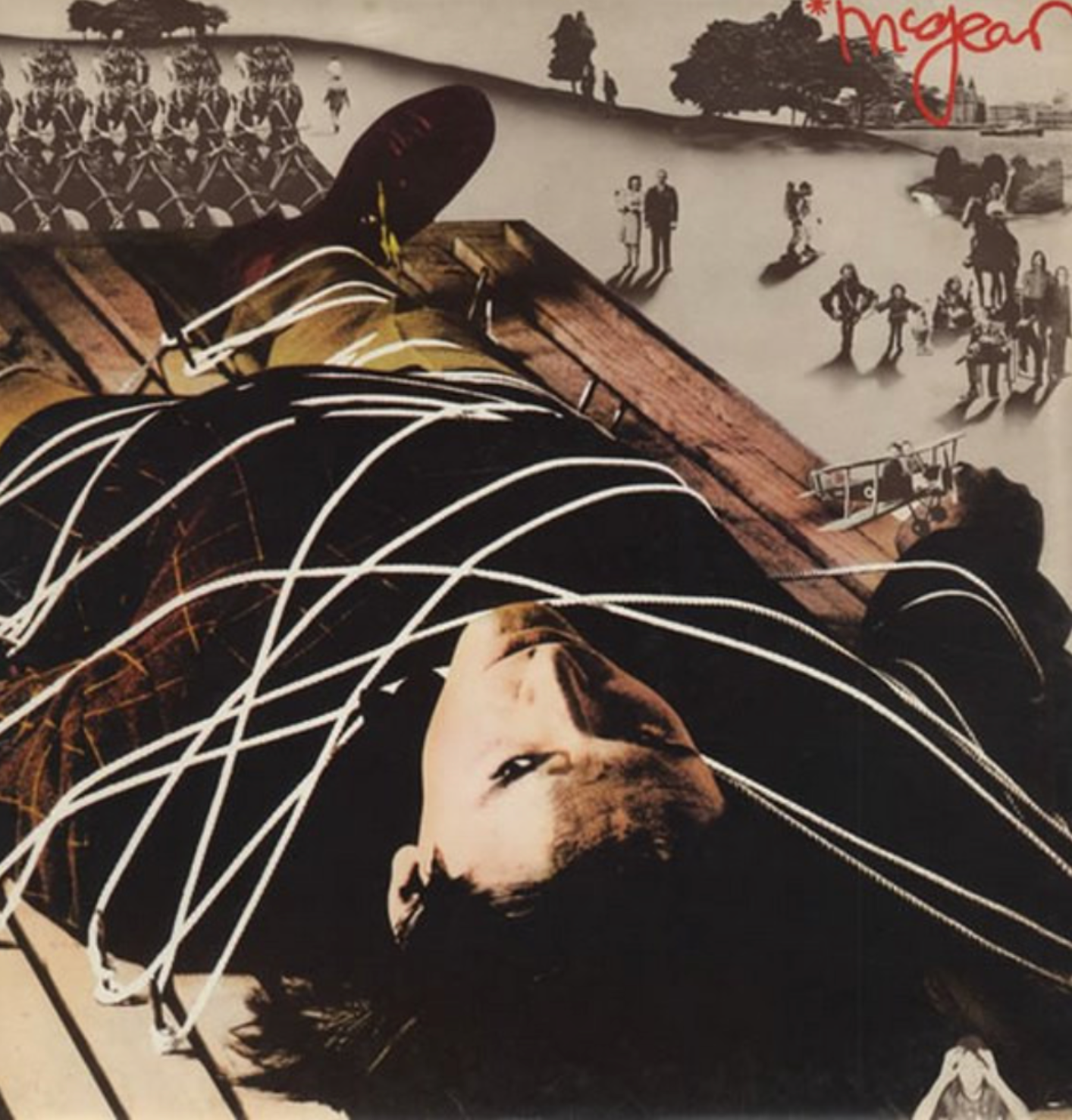
Peter Jesperson: I would call that one of my favourite records of all time. As I mentioned in the book, it's my favourite Paul McCartney LP. To me, it's the coolest work Paul McCartney has done, Beatles aside.
I say that from the standpoint of liking Paul McCartney more than many people do. I love Band On The Run and Venus and Mars, etc., and even the later stuff. I'm disappointed in some of his records here and there. However, I think that McGears record is the best thing that he's done. A lot of people who have said the same thing: that they'd never heard of the Mike McGear record and then now it's one of their favourites and that just means the world to me. So I'm glad to hear you explored it and enjoyed it.
Scene Point Blank: How has the music business changed since you've been in it? I know that there's this whole Ticketmaster and Live Nation monopoly that people seem to be passionate about. It seems that people don't make money from the music anymore -- they make it on the merchandise and also touring. Apparently, Live Nation wants to take up a chunk out of the merchandising and ticket prices have been driven up. It's almost like music's become not very affordable for the average person. Bands are cancelling stadium tours. When you're paying $500 for a ticket to go see someone, or paying your mortgage, I think the choice is obvious. Mind you people don't generally check out newer bands or explore. You can see great rock ‘n’ roll for $20 these days. You just have to open your mind and keep your ear to the ground.
Peter Jesperson: Well, as you say, it's the higher ticket artists that are inaccessible. I go to see a lot of local bands that are playing places where there's no cover or maybe a $10 cover. We went to see a band on Thursday night and the ticket was $17. My wife and I paid $17 a piece to go see a band. That's fine, you know? As far as the high-priced tickets, I don't spend that. There are not a lot of artists that I would spend that kind of money for -- McCartney's probably the only one that I've spent hundreds of dollars on. I have to see him every time he comes and so do my wife and son. It was about $300 apiece, times 3, so we paid almost $1,000 to see Paul McCartney. We are also big Taylor Swift fans and we got tickets for her Eras tour here in LA a year ago. We were lucky and got tickets for $150 apiece, but I thought it was worth it as it was an amazing show. Jesus Christ. She did like 46 songs and played for, like, 3 hours! I'd say that's easily worth $150 bucks to me. It was incredible.
There are some bands that I just skipped. Tegan and Sara, they are a Canadian band that I had seen two years ago and then they were coming back last year. I almost bought a ticket and I was going through the click-on-this, click-on-that, and they kept adding handling charges and the ticket ended up being $80 or something. I'm sorry, I'm just not going to pay $80 for Tegan and Sara as much as I would have enjoyed seeing them again. So I cancelled my order and I didn't go. So, yeah, I agree with you. I think it's fucked up and the bands are struggling on the road and they're not making even enough money to eat, essentially. The promoters now want to take a cut of their merchandise and all that stuff.
Then you read that Live Nation reports its year-end earnings and they've got a billion-and-a-half in profits. It's highway robbery or just pure greed. That greed has always been a problem in the music business. It's a problem with every business and in the world from the beginning of time since money was invented. I mostly avoid that stuff. I go see plenty of shows that have low cover charges or no cover charges.
It's frustrating. I admire the Canadian government which supports the arts. In America we don't have that and it is offensive to me. Somebody said recently that a culture that doesn't support art is going to have fewer artists, and I think that's true. Where there's art that might have been made, that isn't happening because people can't even make a modest living doing it. And that's to me just the saddest thing in the whole world.
Scene Point Blank: There are some huge fees in terms of touring bands coming into the USA. It went up something like 250 percent! I don't think there are any large fees for bands to come into Canada. That's another barrier for bands just trying to tour. Gone are the days when people like Black Flag or The Replacements would just hop in a van and go from city to city or venue to venue, promoter to promoter, and just all word-of-mouth stuff.
Peter Jesperson:Yeah, I did that. I did it at the same time Black Flag was doing it. We were crossing paths on the road back in The Replacements days. So I know that well.
Scene Point Blank: I think it's a harder road to travel now. That being said, would you do anything differently than what you did?
Peter Jesperson:Certainly. One of the things…The title of my book refers to the substance abuse issues that I had. I would certainly try to put a lid on my alcohol consumption. Ee all did too much of all different kinds of drugs and alcohol. However, alcohol was the one that got me and put me in a bad situation with The Replacements, to the point where I was dismissed. I was managing the band and road managing the band for six years and we were all drinking too much. As the manager, it was a bad move on my part. That's not the whole reason, but part of the reason that I was let go. I certainly would try to change that.
It’s funny the way people talk about all the changes in the record industry, but I still do kind of the same thing that I always did, which is looking for great music and trying to tell others about it and where to find it. We've been talking about the incredible amount of music that is available now and how difficult that makes it. However, at the same time, there's more music available to more people than ever before. That's good in some ways, but of course, there are some negative aspects to it too that we haven't learned how to control or fix. So I do think that there are lots of things that could be changed. The major labels are running scared right now because indie releases are cutting into their income in a big way these days. They're not the monolith, or the power, or in-control companies that they used to be. I think something will change. It would be nice to see a reset where some of these egregious financial aspects get changed and reduced.
Scene Point Blank: That's part of being on the road and touring. I think that might be a common theme with anyone on the road. You are killing boredom essentially, waiting for the soundcheck, waiting for showtime, going from town to town, living in a van. etc. It kind of goes part and parcel with that lifestyle.
Peter Jesperson: It does. You're right, Chris. I think you know, but it's a little bit of a cliché and that's part of the reason I'm a little embarrassed that I fell into that cliché. “Oh, Peter Jesperson is one more person with an addiction problem.”
I quit drinking in 1991 and then I ended up going back on the road with another band in the ‘90s, completely sober. They were still drinking to some degree, but they weren't the crazy drinkers that The Replacements were. It was a little different situation. I was in bars, travelling with a band that drank. I didn't have any issues. It didn't make me want to drink again. So you know it can be done. It is kind of part and parcel of the deal. However, you can control it and not allow it to control you. The business of touring and making records and whatnot doesn't always have to be involved in heavy drug use or heavy alcohol use.
I love to write. I get a buzz from writing kind of like I get a buzz from listening to music.
Scene Point Blank: When you're touring with a band like The Replacements, who are well-known to be a big party drinking band, it would be hard not to just say no. I could see why it would be easy to fall into that because I could see myself saying, “Well, they are all having fun and cracking open a beer.”
Peter Jesperson: Exactly. Sometimes it was easy to say fuck it and have a drink. However, it has been over 30 years since I have had a drink and I don't think there would be any situation I can think of where now I would say screw it and start drinking again.
Scene Point Blank: Congratulations on that accomplishment.
Ssince you are a big Dylan fan (like Peter Perrett), have you ever had the opportunity to meet him?
Peter Jesperson: I haven't met him in person. I've run into him a couple of times in social situations. I ran into him in Minneapolis. I had gone to see the band X and as I was leaving the venue I almost tripped over Bob. I imagine he was there with his son Jakob, but I don't know for sure. That was kind of interesting and the closest I ever came.
I'll tell you a cool story though. When my wife and I were getting married in 1997, we had a friend who was a lawyer. They occasionally did some legal work as an assistant with one of Dylan's big lawyers. Around the time we were getting married, he had to go out to Bob's house in Malibu, and he asked his senior lawyer friend if he could bring a book along to have autographed for us as a wedding present. The lawyer said, “With Bob you never know how Bob's gonna feel about that type of stuff. It's a 50/50 thing. He might do it, he might not, but you can bring the book along. Don't be a pest about it and ask politely and if he says yes, then you're in luck. If not, then unfortunately, it's not gonna work.” So they ended up going out to Dylan's house and right when they walked in, Dylan spotted the book under my friend's arm. It was a book of the collected lyrics of Bob Dylan. He said I have a couple of friends who are getting married and the groom was a big part of the Minneapolis music scene, and he worked at the record store Folkjokeopus. Of course, Bob doesn't know anything about the record store and then he says he had the record label Twin/Tone Records. Bob doesn't seem to register any connection to that either. Finally, he says, he managed and produced The Replacements. He said Bob kind of raised his eyebrow when he said The Replacements and kind of went, “Ohh, I know who The Replacements are,” which is kind of interesting. Again he probably knew about them from Jackob but we know Jakob's a big fan so he ended up signing the book for us and we have a book that says, “To Peter and Jen, tell me, how does it feel to no longer be on your lonesome? - Bob Dylan”
So he paraphrased, you know, probably his most famous song, “Like a Rolling Stone,” for us . That is, of course, one of my most treasured possessions!
Scene Point Blank: Well you certainly have led an interesting life and played some pivotal parts in many bands' careers (i.e. Replacements and R.E.M.,etc). So from one music fan to another I thank you for the interview and hope we left enough unsaid so people can get their teeth into your excellent book!
